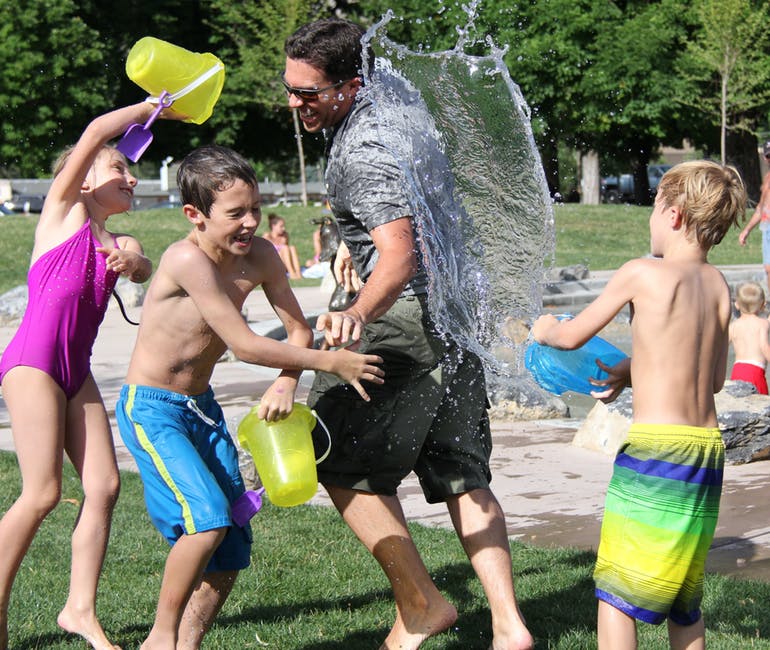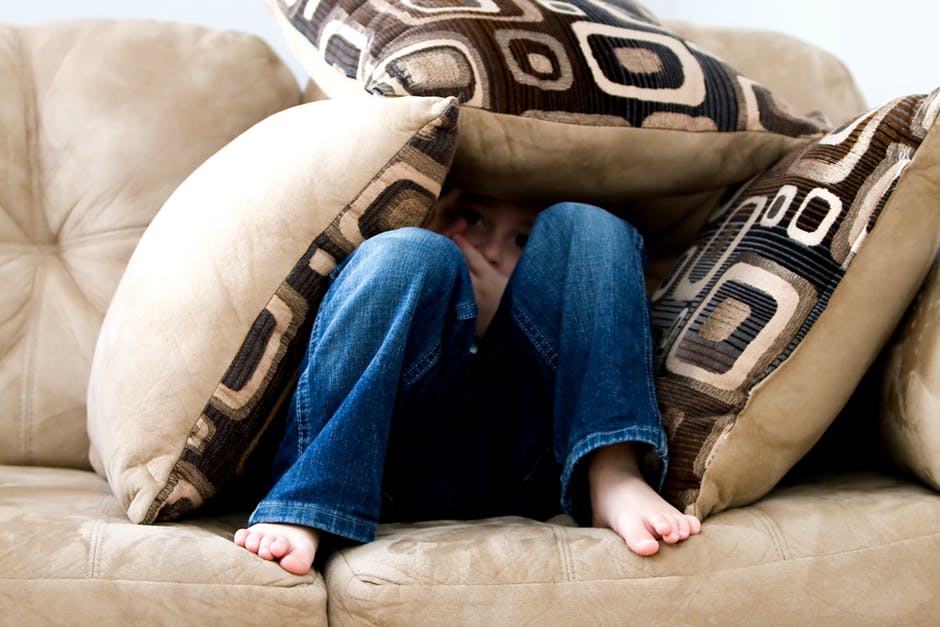
We may earn money from the companies or products mentioned in this post.
Not many actions make parents cringe than watching a child lie to their face.
But children do this, and truth be told everybody lies. That’s just a fact. But what should you do if you want to encourage children to be honest?
Well, let’s first look at lies and lying straight in the face before jumping to conclusions.
Victoria Talwar and Angela Crossman, in their paper “From Little White Lies to Filthy Liars, The Evolution of Honesty and Deception in Young Children”, took a solid look at children and lying in 2011.
They broke children’s lies into two types: Lies of self-protection (anti-social lying) and lies helping to benefit others (pre-social lying)
Here are two quick stories we’ll use to take a closer look at each type of lying.
- Jane accidentally knocked mother’s cherished vase to the floor and it broke. When Jane’s mom asks who broke the vase, Jane says the cat did it. Jane is self-protecting.
- Jane’s little brother, Peter, sees the family cat jump up, knocking mother’s cherished vase to the floor. When Peter’s mom asks who broke the vase, Peter says he himself did it. He’s protecting the cat.
These two stories hint at the subtleties of deception in children and everyone else for that matter. It shows the delicate reason why creative imagination can be an important skill in life.
Talwar and Crossman call it “The Paradox of Lies”.
The Paradox of Lies
 Related Content: How to Have Big Conversations in Little Moments
Related Content: How to Have Big Conversations in Little Moments
In our first story, to be sure, Jane was interested in self-preservation so she chose to deflect the blame to the cat. Which is considered wrong. But it can also be an important skill…
If this were a real life-or-death situation sometime later in Jane’s lifetime, would it be wrong for her to be deceitful to stay alive? I as a parent would say “Jane, lie your little head off if you have to.”
In the second story, Peter chooses to accept the blame to protect the cat.
Historically, in more serious terms, this type of lying protected persecuted peoples from harm because others hid them from persecutors and lied about it. This is considered truly noble… but a lie nonetheless.
So, while some parents might react with “My gosh, little Jane (or Peter) just told me a lie. If I don’t correct this, it’s just a short walk to becoming a psychopath. He (or She) needs to be punished to learn a lesson.”
But it’s easy to see that the act of lying has subtle lessons to be taught.
The lessons themselves would take a lifetime to explore, so I’ll leave that reasoning to you. This is parenting after all. ForMyCrib.com is filled with useful info and advice to help you create a caring, safe and happy sanctuary for your family in which these delicate issues can be ironed out.
Here are some solid ways parents encourage children to be honest, or not.
Be the Example
Whether it’s helping the grocer’s cashier make the till right because they gave you too much change or telling your brother-in-law you won’t be making the holidays because you’ve gotten sick, and you’re not, you set the example for your children.
Nothing you do in raising children will speak to them more than how you live your life. To set the example of “do what I say, not what I do” is a set up for troubled days ahead. Be consistent, be open. Show your children what honesty means to you by how honest you are.
Create a Safe Space
 Every reaction you display in your child’s eyes is going to set up wiring in their minds. Whether this wiring connects in ways where they feel they can tell you anything, or that they need to protect themselves with lies depends largely on how you react to what may be uncomfortable situations.
Every reaction you display in your child’s eyes is going to set up wiring in their minds. Whether this wiring connects in ways where they feel they can tell you anything, or that they need to protect themselves with lies depends largely on how you react to what may be uncomfortable situations.
When your child feels the need to “fess up” about a thing they’ve done they need to feel secure, especially in the formative stages of development.
Reacting with angry outburst and loud, angry words are not going to make your child feel safe. In fact, you may be creating an environment of mistrust and fear. Neither of which make for great learning environments.
Acknowledge honest admissions, especially the hard ones
When you know it has been hard for your child to come to you and share a terrible thing they have done you don’t have to celebrate, but you should let them know you appreciate what they have done.
Courage is a hard thing to muster. And when anybody manages the courage to do what could be a very self-damaging thing that’s a special moment. These are the moments you want your children to think back on and realize that honesty is the best policy.
Look for the “Why”
There’s always a reason why behind a lie. Sometimes it is serious, sometimes it’s not. But taking the time to work with your child and understanding the thought process behind the reasoning is valuable parenting material.
Knowing why the lie had to happen will tell you about the kind of environment your child sees. It may give you cues about what you may be doing that is helping set examples that you may not want to set.
Children are great teachers for parents, and you learn by listening to what they say. Don’t always assume because they are children they have no good reasoning and nothing valuable to say.
Don’t try to “Catch Them Out”
If you know your child didn’t do something they were supposed to, don’t ask them if they did it.
If you do, then you’re inviting a lie because they know an expectation wasn’t met.
You know the answer to your question already. So instead try asking them what can be done to get the task done. These moments are great teaching points.
You have a clear line between expectations and delivery, or right and wrong. Capitalize on this knowledge by using your wisdom to guide your child through the honesty maze.
Don’t Overreact
Remaining calm isn’t easy when inside you’re boiling over. But if you don’t you are reinforcing the idea that when your child is honest about something you’re going to blow up.
That’s not good. Sometimes it means you taking a moment, maybe more, to gather your thoughts.
You can walk away. But when you do, be sure to explain that you don’t want to deal with the issue right now, but it will be addressed.
Encouraging your child to be honest is not always an easy thing to do. It takes understanding, patience, and time. But the rewards are huge.
If you keep your focus on growing the human being in front of you to their best ability, they will show you the guideposts. Just follow.
References: From Little White Lies to Filthy Liars
Author: Al Stander – Facebook
Al is a passionate father of two rambunctious boys who love life. They love to explore various learning tools to improve living, from educational to motivational.
He is of the firm belief that learning is best done through play and love, finding new ways to take advantage of this way of thinking.




I appreciate your article on The Truth About Lying: Encouraging Your Child to Be Honest. I’m glad you mentioned that lying isn’t always the bad thing it’s made out to be. I have a different perspective on this, as I think it’s better to tell the truth. I agree with you on the idea of helping children understand the difference between lying and telling the truth. Dental Implants Chatswood